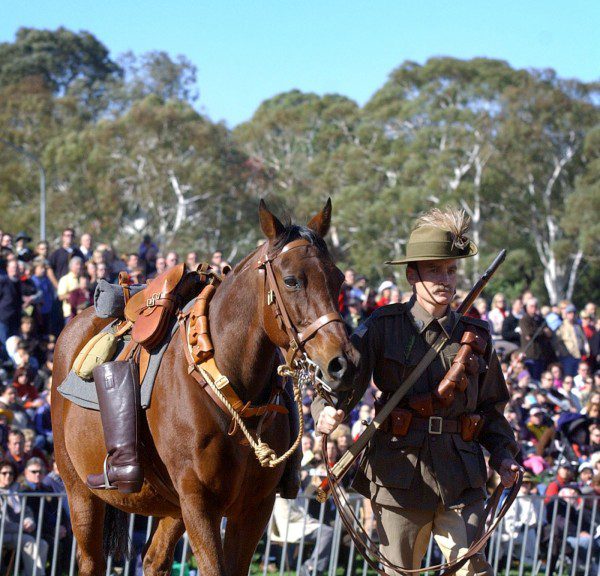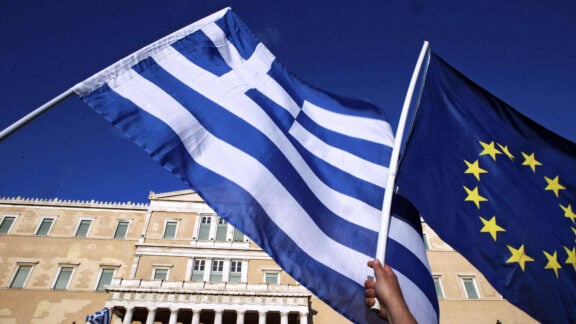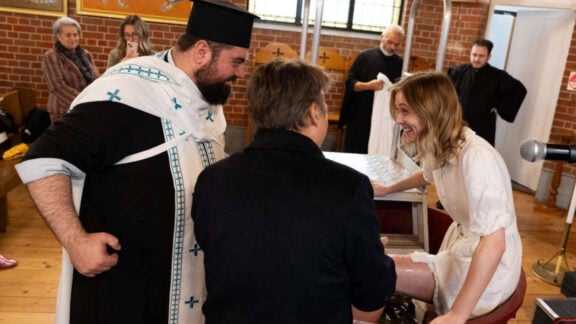Australia as we know was not born as a result of a great national liberation-independence struggle, like the American revolution in 1776, or as a result of a great political revolution that emancipated the people, like the French Revolution in 1789.
Modern day Australia is vastly the result of white colonisation and subjugation of its indigenous people, a historical act that draws its origins in 1788. It is also the result of the democratic
process, a referendum that led to the creation of the commonwealth of Australia in 1901.
Australia Day, the official national celebration of the country, is not a universally accepted day of nation birth and nation building, since it excludes the Aborigines and the day itself symbolises a historical act of colonisation- invasion and not an act of emancipation and liberation for all. Nor was there a separate treaty recognizing indigenous ownership of the land like in New Zealand.
In the Australian popular culture and in the Australian mythology, Anzac Day, the celebration of all of the nation’s military adventures abroad, adventures that started with a military defeat in the Allied invasion of Gallipoli in 1915, is sometimes treated and it is even proposed as a replacement for Australia Day.
This is not surprising, since nation building and heroism are usually defined in terms of conflict, wars and revolutions.
In 1915, Australia was a young colonial nation that was formed officially through the compromises of the political process and the outcome of a referendum. This small Australian nation of approximately five million people, an outpost of the British Empire in the far regions of the world, was in need of great heroic and legendary defining myths, real and imaginary, and Gallipoli, along with the First World War served that purpose for Australia. The Great War where 61.000 soldiers died and 155.000 were wounded, was the first mass military conflict for Australia and touched upon the lives and the imagination of the entire nation. Gallipoli was the historical and the symbolic moment that gave birth to the legends of the diggers, mateship, and struggle against all odds, even if that struggle is sometimes in vain…
However, what is worth highlighting from this years commemorative functions throughout the continent is not only the real events and its myths and/or the symbolisms. What is worth mentioning is the way Australia commemorates Anzac Day.
You do not have in this country an annual military parade or a student parade like other nations have on similar anniversaries. What you do have in urban centres and in remote towns are early dawn ceremonies, parades of veterans of various wars and their descendants and… revelry in the pub afterwards.
What you do have on Anzac Day is not only a grand national-official narrative, dictated by the state, the educational system and the ideological masters of the continent but also many small human narratives-stories, from the children, the grand children, the great grandchildren or other relatives of war veterans. You have personal accounts, memories and myths that they all come together and blend and enhance a greater national myth.
What is worth noticing in Australia, is that the grand national narrative and identity, is also the sum of smaller, and “idiosyncratic” to outsiders stories of achievements or failures of ordinary people as well. These small stories, these liveable, remembered or mythologised everyday lives or historical exemptions, all add up and become part of a greater narrative shaped by the peculiarities of the land, its people and its history.
The narrative of the Anzacs, almost one hundred years after its birth, is one of the most powerful binding myths of this 24 million strong multicultural nation.
This narrative, this remembrance day, this historical and mythological event is something unique in the psyche and in the imagination of quiet a few Australians, especially in rural Australia, where towns were completely decimated of their menfolk.
The way Australians view and feel Anzac Day, is something much bigger, I think, than just a commemoration that was rejuvenated in the middle 1980’s by the Hawke government and a few young backpackers who were influenced by the 1981 Peter Weir movie Gallipoli, or by a Four Corners ABC documentary, as it was suggested in the Fairfax Press last weekend by Tony
Wright.









